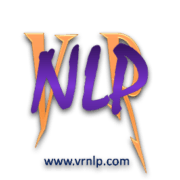Confident assertive communication
CONFIDENT ASSERTIVE COMMUNICATION
In today’s highly competitive environ it’s not just enough to be good at something. We have to be really good at communicating our abilities to others as well.
While some of the methods of communicating this ability may be inanimate – web site, email, c v, or letter of recommendation- the really crucial channel is live and human: how we talk to each other.
The crux of selling ourselves is not only what we communicate but how we communicate as well.
How effective are we in our communication with those concerned with our life or the situation we are in? The answer to this question is the indicator of our success in life.
In fact the quality of our life is the quality of our communication.
In order for communication to be effective one primary requisite is ‘our confidence’ in our ability.
The dictionary meaning of confidence is:
The belief that you can manage successfully.
What is belief anyway?
Belief is simply a thought taken to be true by the individual
So the crux of confident assertive communication is –
building positive self beliefs – the belief in one’s ability to perform, excel, communicate, succeed & shine.
Belief brings relief
ALL GREAT LEADERS ARE POWERFUL COMMUNICATORS
All great leaders are powerful communicators. Their power to communicate comes from a sense of mission and self worth. They have a purpose to work for and persistence to get going against odds.
What are the ways to develop a positive self belief like a leader?
The first requisite is a positive self concept.
SELF CONFIDENCE IS THE BELIEF IN ONE’S ABILITY.
SELF IMAGE IS ONE’S IMPRESSION ABOUT ONESELF.
SELF ESTEEM IS ONE’S OWN REPUTATION ABOUT ONESELF.
These three qualities are inter-related. Any change in one of these affects or effects the other two.
So a positive self concept is the first pre-requisite for effective communication.
WAYS to develop POSITIVE ASSERTIVE COMMUNICATION
- Self Acceptance
- Appreciating one’s uniqueness
- Stop comparing with others
- Belief in one’s ability
- Being curious to learn & grow
- Having an aim in life
- Overcoming fear of failure
- Learning from failure.
- Respecting others
- Positive attitude
SIX POWERS of CONFIDENT LIVING
1) POWER OF BELIEF
2) POWER OF RESPONSIBILITY
3) POWER OF FOCUS
4) POWER OF COMMITMENT
5) POWER OF ACTION
6) POWER OF ACHIEVEMENT





